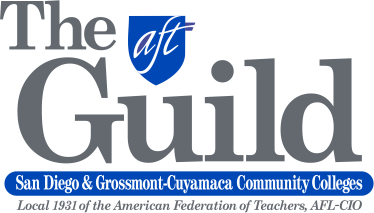By James Miller
There is a movement afoot to reform Proposition 13, with community organizations aligned with labor promoting the Schools and Communities First ballot measure. Why would anyone want to touch the third rail of California politics? The answer is simple: we can keep its central benefit to homeowners while closing an unnecessary corporate loophole that will help our schools, cities, and counties across California.
Ever since its passage in 1978, Proposition 13 has starved California’s schools and local governments of funding. While the measure was pitched as a way to keep individual homeowners from being buried by taxes, the real beneficiaries of Prop. 13 were not elderly folks or other vulnerable groups struggling to hang on to their homes, but super rich corporate property holders.
What most voters don’t know about Proposition 13 is that it gave huge commercial property owners like Disneyland the same tax break as your grandmother. In fact, rather than liberating homeowners, Proposition 13 shifted the property tax burden away from commercial property owners and onto individual households. As Robert Reich has noted, before the passage of Prop. 13, property taxes on houses accounted for 55% of property tax paid while commercial property contributed 45% of the total. Today, homeowners shoulder 72% of the tax burden versus only 28% for big commercial properties.
And even the benefits to the average homeowner are exaggerated, as Michael Hiltzik has pointed out in the Los Angeles Times, “most of the proposition’s benefits went to wealthier Californians –two thirds to homeowners earning more than $80,000, and most of that to those earning $120,00 and up.”
Researchers from USC have documented that as a result of the post-Prop. 13 property tax system, schools, cities, and counties have lost over $11 billion in revenue annually with 80% of the losses coming from the largest 8% of commercial properties. Thus, this cooperate tax loophole put a huge hole in California’s finances that we have never recovered from. It’s why we are 41st in the nation in per pupil spending and dead last in teacher to student ratio for instance.
Indeed, the biggest legacy of Proposition 13 has been that California, despite being the world’s 5th largest economy, has schools, counties, and cities that frequently struggle with austerity, particularly during economic downturns. Another way of putting it is that Proposition 13, the spawn of right-wing backlash politics, was very effective at what folks like Reagan administration official David Stockman charmingly refer to as “starving the beast.” That is, preventing government from being effective by limiting resources and then calling for more cuts because of that ineffectiveness.
In recent years, Californians have shown more appetite for progressive taxes than for draconian cuts, as the passage of Propositions 30 and 55, with their temporary taxes on the rich to fund education, showed. Now, with the Schools and Communities First measure, progressives are aiming to put Proposition 13 reform on the ballot in 2020 in an effort to finally address some of the glaring inequities that resulted from that ill-conceived initiative.
What Schools and Communities First would do is simply close the commercial property tax loophole by reassessing the top 13% of commercial properties valued at over $3 million at current rates. For instance, huge commercial properties that haven’t changed hands for decades, like Disneyland, are still billed at 1970s rates while newer homes and businesses in the same community pay a much higher rate. This measure would leave individual homeowners completely untouched and level the playing field for small and newer businesses that are not receiving the same protections as the richest commercial property owners.
This simple, much-needed reform would bring in about $11 billion annually to help finally restore more adequate funding for California’s schools and local governments. It is already being fiercely opposed by the corporate sector that is happy to continue benefiting from this tax loophole despite that fact that it is both unfair and bad public policy.
The early social media ads funded by corporate interests call on voters to “Fight for Proposition 13” against an effort they characterize as designed to “destroy Proposition 13” and “increase taxes in California on homeowners and businesses.” Of course, this is inaccurate because the measure leaves individual homeowners untouched and instead focuses on wealthy businesses with property valued at over $3 million. Why the lie? Perhaps because, the merits of the actual reform are much tougher to dispute. Hence the strawman argument with its appeal to fear.
Elsewhere in the San Diego Union-Tribune, the editorial page took a different tack, calling on their readers to ignore any discussion about education and focus on what they call, “the larger context.” Of course, the context that matters for the SDUT is not the history of the anti-tax movement in California or the decades of austerity that Prop. 13 produced for the public sector and education, it’s union bashing: “It isn’t about ‘fairness’ or ‘helping the kids’ or any of the other clichés with which it’s going to be sold. It’s about propping up costly public employee pensions.”
From there, the editors go on to pit “government unions” against private sector unions and the public at large. Not surprisingly they don’t discuss the actual history of Proposition 13 or how California’s education spending stacks up against other states. Nothing either about how public education spending has never fully recovered after the massive cuts the system took in the wake of the Great Recession. That might get in the way of their anti-union tirade.
For the SDUT, which it should be noted busted all its unions, the solution is not to close a corporate tax loophole that helps fund education and deals with rising teacher pension costs, but rather to demonize public sector workers and call for yet another effort to shrink the middle class.
Of course, the purpose of the SDUT’s editorial is to defend what they call a “business friendly measure” but Prop. 13 hasn’t even been particularly fair for small businesses who’ve ended up with the short end of the stick when compared to their super rich corporate counterparts. We can and should do better. It’s time to level the playing field.
In the face of these kinds of dishonest and divisive attacks, the campaign for Schools and Communities First will not be about pitting working Californians against each other or dragging somebody down, but about raising everyone up by building a better future. It will be a big fight, to be sure, between those peddling fear and recrimination and those struggling for social justice and hope.






0 Comments